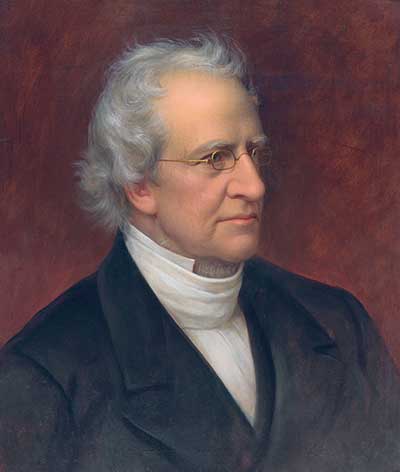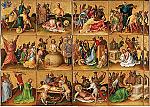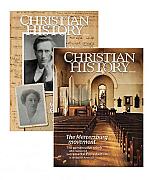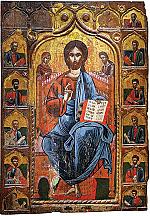Questions for reflection: Mercersburg movement

[Rembrandt Peale, Charles Hodge, Nineteenth Century. Oil on canvas—Public doman, Wikimedia]
In a group or on your own, use these questions to help you reflect on the legacy of the Mercersburg movement.
1. “How to speak ‘Mercersburg,’” inside the front cover, defined several philosophical and theological ideas present in this issue. Can you trace any of the defined philosophies in your own faith tradition? How might these ideas have shaped your understanding of the Bible?
2. Who were the main figures and what were the main ideas of the Mercersburg movement (pp. 7–12)? Which, if any, of these ideas influence American religion today?
3. Summarize Charles Hodges’s critique of The Mystical Presence (p. 12). How did Nevin’s response answer his critique? Which, in your opinion, is more compelling?
4. How does Nevin’s Christocentric argument (p. 13) reflect the influence of idealist philosophy?
5. What were John Nevin’s theological views, and what were their practical implications (pp. 14–17)? Why did he face disagreement and controversy?
6. What did Philip Schaff say to the German Reformed Church synod in his inaugural address (pp. 19–22; p. 23)? What was the response he received and why?
7. Describe New Measures revivalism (pp. 26–29). What was Nevin’s answer to this form of revivalism?
8. In the excerpt from The Anxious Bench (p. 30), how does Nevin differentiate revivalism from revival? Do you agree? Why or why not?
9. Discuss the conflict over the provisional liturgy in the German Reformed Church. How did this “worship war” resolve (pp. 31–33)?
10. What surprised you about the Mercersburg liturgy (p. 34)? Does your faith tradition use a written liturgy? If so, how is it similar or different?
11. Who was Emanuel Gerhart (pp. 35–37)? How did he contribute to the Mercersburg movement?
12. Who is the most interesting figure featured in the gallery (pp. 38–41) and why?
13. Take a look at the roundtable discussion on pp. 42–45. What did you learn about the legacy of the Mercersburg movement today? How has Mercersburg shaped our interviewees? Do you find yourself drawn to the movement as they were?
14. How has the Mercersburg movement helped you think about ecumenism? Is church unity, as the movement imagined it, possible? Why or why not?
15. Of the excerpts shared in this issue, which one resonated with you the most and why? CH
By the editors
[Christian History originally published this article in Christian History Issue #155 in 2025]
Next articles
Did you know? What Happened to the Apostles?
Though often creatively hyperbolic and of dubious origins, apostolic legends have inspired believers through the ages
the editorsLetters: What Happened to the Apostles?
Readers respond to Christian History
our readers and the editorsEditor's Note: What Happened to the Apostles?
God reveals himself to us in a true story
Kaylena Radcliff







